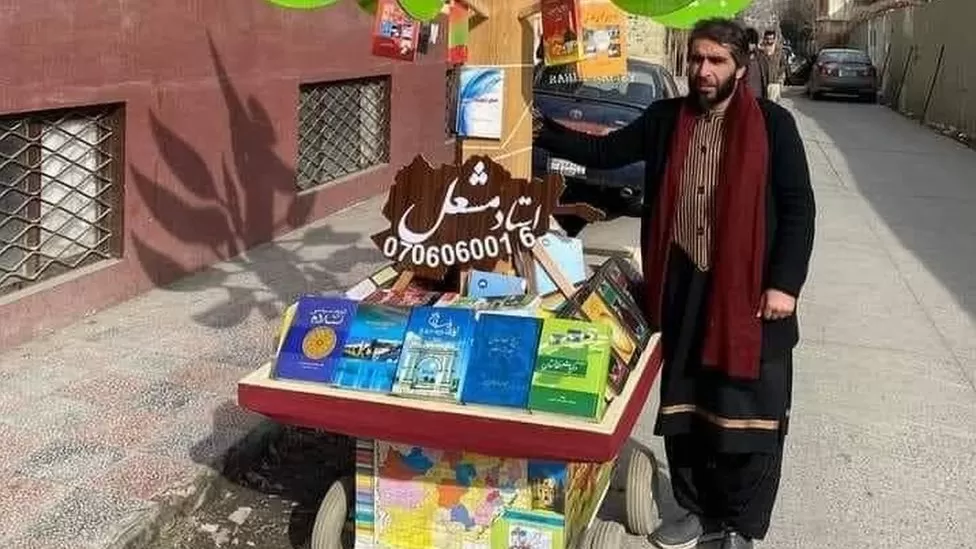The Taliban's Stranglehold on Women's Right to Education Tightens
Afghanistan

After 20 years of continuous violence by the Taliban and other insurgency movements targeting civilians in Afghanistan, on August 15, 2021, the Taliban took the capital city of Kabul and dissolved the government and the democratic order in Afghanistan. Since then, the humanitarian crisis in Afghanistan has continued to exacerbate pre-existing challenges, including poverty, hunger, and escalating violence in the country already struggling to recover from the pandemic. U.S. forces, Taliban, pro-government forces, and other non-state actors continued to bomb indiscriminately. As such, civilians are hurt and killed while civilian establishments, including education facilities, are damaged and destroyed. The Taliban also disbanded the parliament, comprising both upper and lower houses, with elected representatives from citizens across the country. The elected provincial councils were also disbanded, leaving no avenue for the political representation of the people in the current power structure. This particularly damaged ethnic minorities and vulnerable groups.
The Taliban regime has egregiously restricted rights, such as freedom of expression and freedom to assemble, and the right to education especially for women. The Taliban have a long record of excluding women and girls from the public sphere but had promised to protect women’s rights and freedoms after seizing power. Yet, soon after coming to power, they disbanded the Ministry of Women’s Affairs, removed women employees from government positions, ordained that many women were not permitted to work outside the home, and banned them from public places such as parks and gyms. The only areas where women are now allowed to work are in healthcare and education. Young girls are banned from attending school beyond the 6th grade. The primary schools that are still open are experiencing falling attendance because families are afraid of sending their daughters to school and anxious that they will face persecution from the Taliban if they do so. With teachers leaving their positions because the Taliban-led government has failed to pay their salaries, many schools have closed or are running on reduced capacity. There have been reports of the Taliban harassing and threatening teachers, such as those who were engaged with co-ed sports and English. In December of 2022, the Taliban officially banned women from attending universities, drawing international condemnation.
Journalists, activists, scholars and students, as well as gender, sexual, ethnic, and religious minorities are among the primary targets of the Taliban. Targeted killings of higher education scholars in 2021 increased under the Taliban. After the Taliban takeover in August of 2021, they immediately implemented gender segregation in universities, barring women from male-dominated spaces. They do not allow male educators to interact with their female students without the presence of a third party. When Kabul fell to the Taliban, they immediately took over the American University of Afghanistan, which was one of the premier institutions of higher learning in the country. Drastic changes in the education sector have not only discouraged students from pursuing their education, but also has led to a decrease in the number of scholars in higher education in the country. Many university professors have left the country since the Taliban came to power, while many other faculty and students who cannot leave the country have gone into hiding.
The animosity of the Taliban towards institutions of higher education, particularly ones they deem as unislamic, as well as schools, goes back decades and became very violent in recent years. In 2020, the Taliban stormed Kabul University, killing 22 and wounded dozens more before the security forces were able to take them down. In 2021, the reported attacks on schools increased dramatically and Amnesty International reports that Tughani High School and Khetib Zada High School in Sar-e Pul city, Zakhail e Khondon High School in Kunduz city, and Alishing High School in Alishing district in Laghman province are being used for military purposes.
Under Taliban rule, scholars and the academic community is under great threat, case in point is the arrest of renowned Kabul University Professor, Dr. Faizullah Jalal, who was detained and allegedly tortured after he criticized Taliban policies on national television. Dr. Mumtaz Sherzai from Khost University is another scholar who was disappeared and later discovered dead with evidence of torture.
Endangered Scholars Worldwide stands with all Afghan students and scholars whose lives, careers, and education have ended since the Taliban’s return to power. ESW stands with all Afghans who are living under the rule of the Taliban, and condemns the persecution of gender, sexual, religious, and ethnic minorities. We urge the international community to make every effort to make the Afghan government honor their obligations under international humanitarian law and human rights treaties, including to ensure free and unhindered humanitarian access to people in need of assistance and protection, open borders for the safe movement of students, faculty, artists, human rights activists, and journalists; and to honor the right to education and free expression.
In order to support Afghan scholars, students, and civilians around the world, we have compiled a list of resources available through the New University in Exile Consortium and the larger academic and activist communities.
(Last updated January 5, 2023)
Please send appeals to the following:
Mr. Naseer Ahmad Faiq
Chargé d’affaires, a.i. of Afghanistan to the United Nations,
Permanent Mission of the Islamic Republic of Afghanistan to the United Nations in New York
Address: 633 Third Avenue, Floor 27A, New York, NY 10017
Email: web@afghanistan-un.org
Phone: 212.972.1212
H.E. Mr. Nasir Ahmad Andisha
Ambassador Extraordinary and Plenipotentiary,
Permanent Representative to the United Nations Office in Geneva
Address: Avenue de France 23, 1202 Geneva
Email: mission.afghanistan@bluewin.ch
Phone: +41 22 731 16 16



















